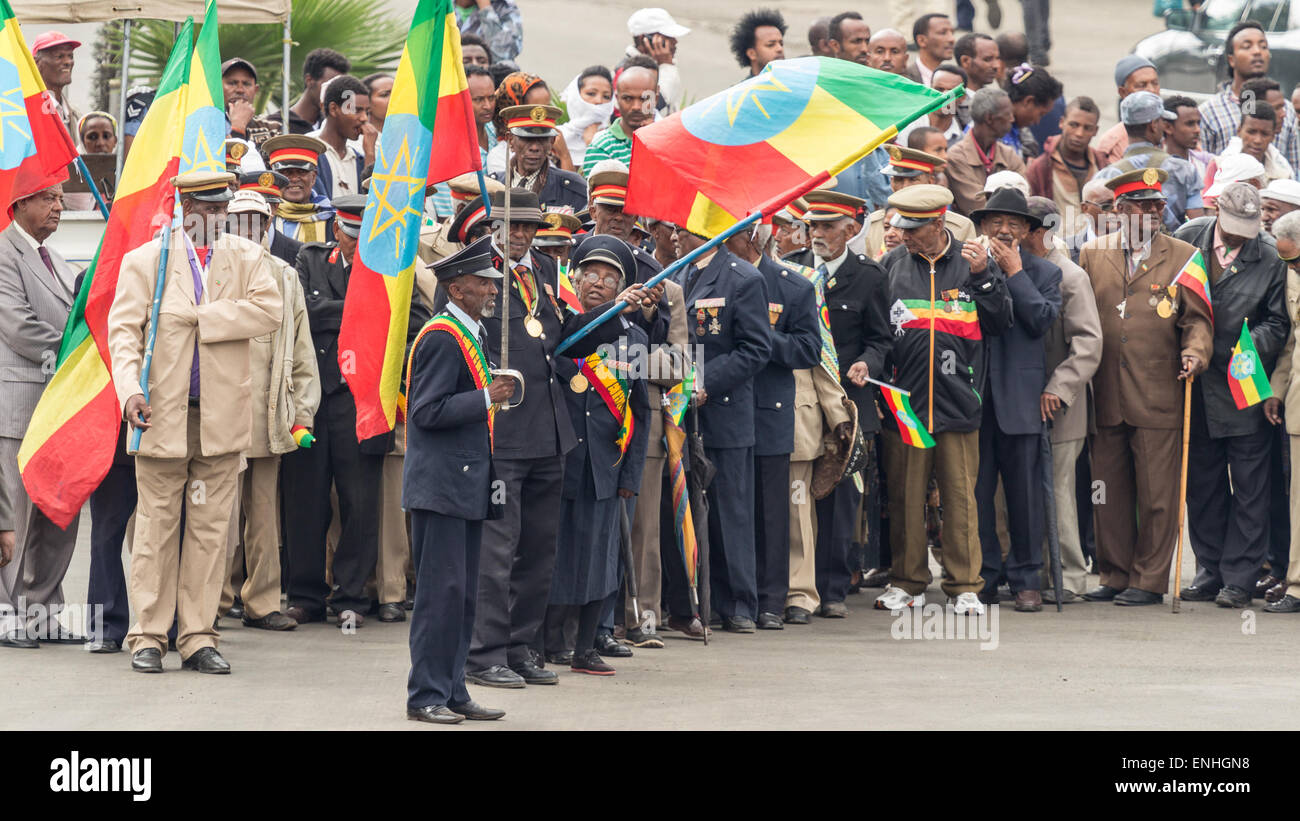Patriot's Victory Day (May 5)
Overview:
Date of Celebration: Patriot's Victory Day is celebrated annually on May 5 in Ethiopia. It is a national holiday that honors the Ethiopian patriots who fought and sacrificed their lives in the struggle against the Italian occupation during the Second Italo-Ethiopian War (1935–1941). The day marks the victory of Ethiopian patriots in the final stages of the resistance against the Italian fascist forces, leading to the liberation of Ethiopia in 1941.
Significance: Patriot's Victory Day commemorates the remarkable resilience and courage of the Ethiopian people who resisted Italian colonial forces, particularly during the occupation. The holiday highlights the efforts of Ethiopian men and women who fought to preserve their sovereignty and independence in the face of foreign aggression. It serves as a reminder of Ethiopia’s historic role in resisting colonialism—a feat celebrated across Africa and beyond.

Historical Context:
The Second Italo-Ethiopian War: The war began in 1935, when Italy, under the leadership of Benito Mussolini, launched an invasion of Ethiopia with the aim of expanding its colonial empire. Although Italy initially occupied large parts of the country by 1936, Ethiopian resistance continued.
The Role of Ethiopian Patriots: Even as major cities were captured, local fighters—comprising soldiers, civilians, farmers, and militias—engaged in guerrilla warfare and sabotage. Their relentless efforts exploited Ethiopia’s varied terrain and showcased the deep-rooted nationalism among its people.
The Role of Haile Selassie: During the occupation, Emperor Haile Selassie went into exile, appealing for international support. Despite limited action from global bodies, the momentum of resistance grew, especially with Allied support during World War II.
Liberation of Addis Ababa: On May 5, 1941, Ethiopian patriots, supported by British troops, recaptured Addis Ababa, restoring sovereignty and ending the Italian occupation.
Post-Liberation Significance: After liberation, Patriot's Victory Day was formalized as a national holiday. It celebrates the unity and determination that secured Ethiopia’s independence and symbolizes resistance to colonial oppression—a message that resonates across Africa.
Cultural and National Significance:
- Honoring Ethiopian Patriots: This day is an opportunity for Ethiopians to express gratitude for the sacrifices made by their ancestors, uniting diverse communities in remembrance of both male and female patriots who contributed to the struggle.
- Commemorating Resistance to Colonialism: As a symbol of defiance against European domination, Patriot's Victory Day is celebrated as a beacon of African resistance, inspiring similar struggles across the continent.
- Unity and National Pride: The holiday reinforces Ethiopian national identity by uniting people in a shared history of valor, emphasizing self‑determination and independence.
- Moral and Political Impact: Beyond historical remembrance, the day serves as a reminder to stand against oppression and maintain vigilance over national sovereignty, a call echoed in contemporary political discourse.
How Patriot's Victory Day is Celebrated in Ethiopia:
- Public Ceremonies and Speeches:
Official ceremonies and public gatherings are held in government institutions and urban centers like Addis Ababa. Leaders deliver speeches highlighting the sacrifice of patriots and the importance of maintaining national unity.
- Military Parades and Tributes:
Military parades showcase the strength of the Ethiopian armed forces with honor guards, military bands, and displays of equipment. Veterans are honored as symbols of national resilience.
- Commemoration Services and Mass Gatherings:
Local communities hold memorial services, educational events, and cultural exhibitions that detail the history and legacy of the struggle. These events often include prayers and patriotic songs.
- Public Displays of Ethiopian Flags:
The widespread display of Ethiopian flags symbolizes national pride, with the colors green, yellow, and red representing freedom, unity, and peace.
- Educational and Cultural Programs:
Schools and universities host lectures, drama performances, and historical exhibitions to educate the younger generation about the battle and its significance in Ethiopian and African history.
Conclusion:
Patriot's Victory Day is a deeply significant national holiday for Ethiopia. It commemorates the victory of Ethiopian patriots over Italian forces during the Second Italo-Ethiopian War, a victory that restored Ethiopia’s sovereignty and instilled enduring national pride.
This holiday provides a moment for Ethiopians to reflect on the values of freedom, self-determination, and unity that continue to shape the nation's identity today. Through military parades, public ceremonies, cultural programs, and educational initiatives, Ethiopia commemorates this pivotal moment, ensuring that the courage and sacrifice of its patriots continue to inspire future generations.
Note: Different sources such as BBC, Reuters, and Al Jazeera have been used to provide a diverse perspective on Ethiopia's history and celebrations.